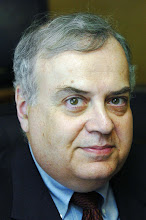Life after newspapers
A key excerpt:
"Half-truths, obfuscations and apparent deceit -- these are the wages of a world in which newspapers, their staffs eviscerated, no longer battle at the frontiers of public information. And in a city (Baltimore) where officials routinely plead with citizens to trust the police, where witnesses have for years been vulnerable to retaliatory violence, we now have a once-proud department's officers hiding behind anonymity that is not only arguably illegal under existing public information laws, but hypocritical as well.
"There is a lot of talk nowadays about what will replace the dinosaur that is the daily newspaper. So-called citizen journalists and bloggers and media pundits have lined up to tell us that newspapers are dying but that the news business will endure, that this moment is less tragic than it is transformational.
"Well, sorry, but I didn't trip over any blogger trying to find out (police officer) McKissick's identity and performance history. Nor were any citizen journalists at the City Council hearing in January when police officials inflated the nature and severity of the threats against officers. And there wasn't anyone working sources in the police department to counterbalance all of the spin or omission.
"I didn't trip over a herd of hungry (Baltimore) Sun reporters either, but that's the point. In an American city, a police officer with the authority to take human life can now do so in the shadows, while his higher-ups can claim that this is necessary not to avoid public accountability, but to mitigate against a nonexistent wave of threats. And the last remaining daily newspaper in town no longer has the manpower, the expertise or the institutional memory to challenge any of it."
 RSS
RSS


<< Home